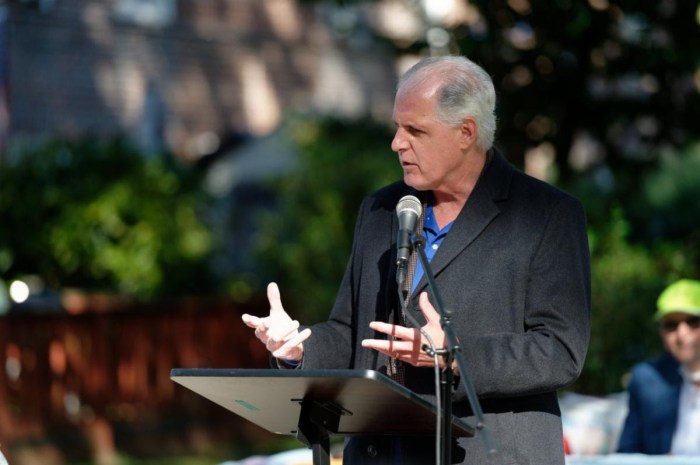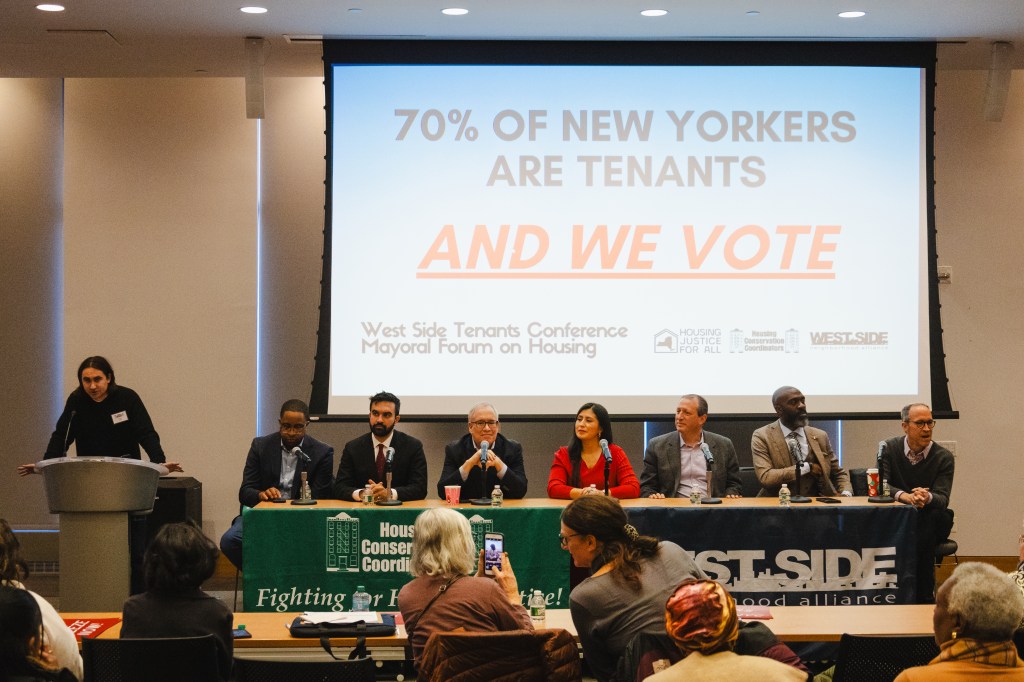By peter A. Sutters Jr.
“It might sound strange to the average person, but I always thought something would catch up with me,” said Joseph Checola, 52, from his Floral Park home with his wife, Lisa, by his side. Checola has hepatitis B and cirrhosis, which he said are directly related to his alcoholism of years ago, and he is now in dire need of a liver transplant. He is on the transplant list at New York University Medical Center, but he faces a long wait for a liver.”I'm at the point where I'm not sick enough to get a cadaver liver, but I'm too sick to work,” said Checola, who worked as a heavy machine operator before his illness kept him off the job. Checola was homeless and an alcoholic 18 years ago before he woke up one day and decided enough was enough and enrolled in the “Twelve-Step Program,” which has kept him sober ever since and brought religion back into his life. “God saw fit to bring me to the 'Twelve-Step Program,'” said Checola. “And the 'Twelve-Step Program' saw fit to bring me back to God.”Ten years ago the couple married and have had a child together in addition to raising two daughters from Lisa's previous marriage. But life has been anything but easy for the family. Lisa, a nurse at Zucker Hillside Hospital, is a breast cancer survivor and lost her mother to lung cancer soon after she had finished her own chemotherapy. Checola was close to receiving a liver from a friend of his a few months ago, but the man's liver was too small for doctors to take a portion of and the transplant was called off.”That was pretty devastating because the doctor gave us a date for the operation,” said Checola. “The next day they called us to say it was no good.”Unlike other organ transplants, the donor only needs to give a portion of his or her own liver, according to Dr. David Bernstein, chief of the division of gastroenterology and nutrition at North Shore University Hospital.”The procedure involves the donor giving half of their liver and within several months it grows back in both patients,” said Bernstein. “You'll essentially have two full grown livers.”Bernstein said in order to be considered a donor must be extremely healthy, have a matching blood type, and have a liver of a similar size than Checola's. The Checolas are now reaching out to the community to help them locate a potential donor after some of Lisa's co-workers got involved in the search.”It was really nice, I was overwhelmed,” said Lisa Checola, of the outpouring of support from her employer and co-workers.If you have Type-O blood and are in good health and would like to see if you are a potential donor, call the Checola's family friend, Joe, at 917-561-1011.Reach reporter Peter A. Sutters Jr. by e-mail at news@timesledger.com or by phone at 718-229-0300 Ext. 173.


































